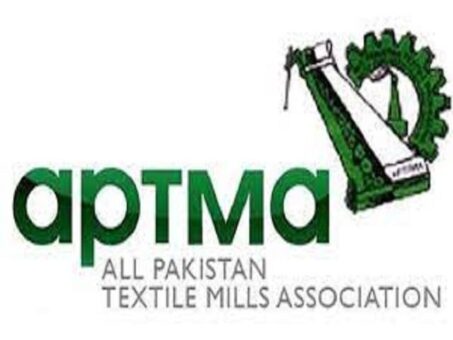Karachi, November 2, 2023 – The All Pakistan Textile Mills Association (APTMA) has issued a stern warning to the government, cautioning of a substantial decline in textile exports following an unprecedented hike in gas tariffs.
Zahid Mazhar, Southern Zone Chairman of APTMA, has strongly criticized the recent extraordinary increase in gas tariffs for export-oriented industries, expressing deep concern about its potential detrimental impact on the already struggling textile industry.
In a statement released to the media, Zahid Mazhar highlighted the recent gas price hike of a staggering 118 percent, raising prices from Rs. 1,100/MMBTU to Rs. 2,400/MMBTU. He emphasized that this increase is poised to further erode Pakistan’s exports, particularly in the textile sector. Mazhar pointed out that the textile industry in Sindh and Balochistan would bear a disproportionately heavier burden compared to Punjab due to this tariff hike. Additionally, he noted that during discussions with the Federal Minister for Energy and Minister for Commerce, it was agreed that the natural gas tariffs for export process and export captive industries would be identical. However, the final announcement revealed a Rs. 300/MMBTU disparity between these two categories, a decision deemed discriminatory and against the prior understanding.
Mazhar expressed his concerns about the cumulative impact of rising gas tariffs and high electricity costs on an industry already grappling with exorbitant mark-up charges and other input costs. He stressed that this situation could have dire consequences for the textile sector.
Furthermore, Zahid Mazhar criticized the government’s decision to raise gas prices by Rs. 1,300/MMBTU for export-oriented industries when the Oil and Gas Regulatory Authority (OGRA) had recommended a much smaller increase of only Rs. 250/MMBTU. He argued that this significant discrepancy suggests a lack of government support for the export sector, signaling a shift in priorities.
Mazhar also drew attention to the challenges faced by the textile industry in Sindh and Baluchistan, including a shortage of gas supplied by the Sui Southern Gas Company (SSGC), resulting in capacity utilization levels of only 60 to 65 percent. This underutilization has led to a loss of approximately 20 percent of exports. He warned that the substantial gas tariff hike could force many industries to shut down, leading to a surge in unemployment, economic instability, and potential law and order issues.
In conclusion, Zahid Mazhar called upon the government to reconsider its decision to increase gas prices for the export sector and urged an immediate rationalization of these rates, taking into account the concerns raised. He emphasized that the move could prove disastrous for Pakistan’s rapidly deteriorating economy, and instead suggested addressing the gas circular debt through measures like tackling gas theft and leakages, as well as reducing gas losses (UFG) to international standards. He stressed that the export sector cannot bear the responsibility of cross-subsidizing the gas sector and that the government should prioritize supporting the export industry, which is vital for the nation’s economic well-being.
